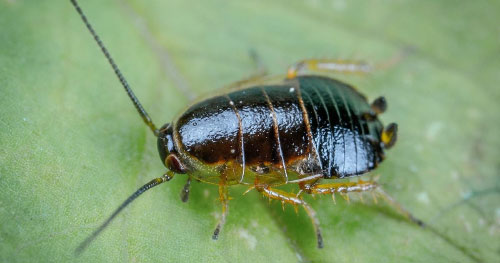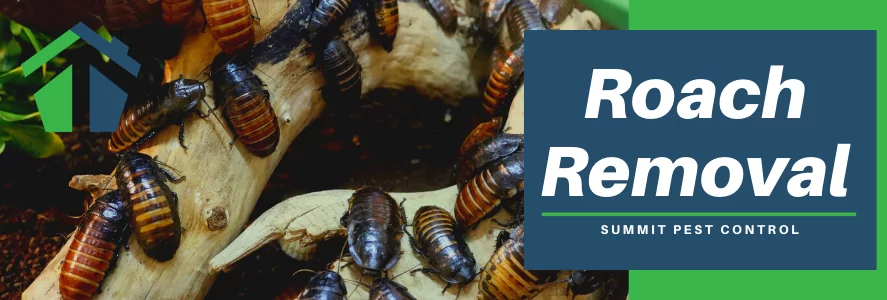Checking Out Numerous Parasite Control Approaches to Achieve Long-Term Success in Taking Care Of and Protecting Against Invasions in Suburb
Effective parasite control in houses necessitates a complex method that balances immediate results with long-lasting sustainability. By checking out a variety of methodologiesâEUR" including environment-friendly services, chemical options, and Integrated Insect Administration (IPM) âEUR" house owners can develop approaches that not only attend to present invasions yet additionally protect against future events. This expedition exposes the possibility of innovative methods and emerging modern technologies that may redefine standard pest monitoring. What might these innovations require, and how can they change our understanding of parasite control?
Comprehending Insect Control Methods
Although bugs have existed together with people for centuries, the approaches used to manage them have developed considerably gradually. Recognizing these approaches is vital for successfully taking care of and preventing invasions in suburbs. Bug control methods can be generally categorized into three main methods: cultural, mechanical, and chemical.
Cultural techniques concentrate on changing the environment to lower parasite destination and reproduction. This includes correct cleanliness, plant turning, and environment modification, which can considerably reduce pest populations. Mechanical control involves physical barriers and catches to manage insects directly, such as displays, vacuums, and sticky catches. This technique is frequently preferred for its non-toxic nature and immediate outcomes.
Chemical control continues to be among the most commonly made use of techniques, including the application of pesticides to remove pests. While effective, this approach necessitates mindful factor to consider of safety and security, possible resistance advancement, and environmental impact. Integrated Insect Administration (IPM) integrates these methods to create an all natural approach, advertising lasting parasite avoidance and minimal harm to helpful organisms. By comprehending these various parasite control techniques, homeowners can make educated choices that promote efficient administration and conservation of their living spaces.
Eco-Friendly Parasite Control Solutions
Just how can home owners successfully handle bug troubles while decreasing their environmental effect? Eco-friendly bug control remedies use a lasting choice to traditional methods, prioritizing the wellness of both citizens and the surrounding ecosystem. These remedies usually use all-natural active ingredients and techniques that interrupt parasite behavior without presenting dangerous chemicals into the setting.
One effective technique is the usage of useful pests, such as ladybugs and lacewings, which exploit common parasites like aphids and termites. Additionally, diatomaceous earth, an all-natural powder made from fossilized algae, can be sprayed in areas where bugs prevail, serving as a desiccant that hurts pests while staying risk-free for human beings and family pets.
Furthermore, implementing safety nets is important. roach control near me. Homeowners can ensure appropriate cleanliness by sealing entrance factors, keeping tidy living rooms, and taking care of waste successfully. Growing pest-repellent natural herbs, such as mint and basil, can additionally hinder undesirable site visitors
Ultimately, environmentally friendly parasite control remedies equip home owners to resolve invasions sensibly, cultivating a much safer living atmosphere while promoting eco-friendly balance. By welcoming these techniques, individuals can contribute to a healthier world while properly handling pest-related issues.
Chemical Pest Control Options
While eco-friendly solutions are significantly preferred, there are circumstances where chemical insect control choices might be required for efficient management of extreme invasions. Chemical controls, including pesticides, fungicides, and herbicides, are frequently utilized to swiftly minimize pest populaces and mitigate damage to homes and yards.
These products can be identified right into 2 major classifications: artificial chemicals and natural chemicals. Artificial chemicals, such as pyrethroids and neonicotinoids, are read this engineered to target details bugs, giving quick knockdown impacts. On the other hand, natural pesticides, stemmed from plant or mineral resources, may supply a much more eco-friendly option while still providing reliable outcomes.
Before utilizing chemical parasite control, it is important to perform an extensive evaluation of the problem and identify the particular insect entailed. This guarantees that the chosen chemical is both efficient and ideal. Additionally, house owners must stick to safety and security guidelines, consisting of correct application techniques and individual safety equipment, to decrease wellness dangers and environmental effect.
Integrated Insect Administration Methods

Organic control entails making use of all-natural killers or bloodsuckers to handle insect populations. Presenting ladybugs can aid control aphid infestations. Cultural techniques, such as plant rotation, hygiene, and environment adjustment, aim to make atmospheres much less favorable to pest survival and recreation. Physical controls, like traps or obstacles, can avoid pests from getting in homes or destructive crops.
Surveillance and evaluation are essential components of IPM, enabling prompt interventions based on pest population limits. By prioritizing preventative steps and utilizing a combination of tactics, IPM not just addresses existing invasions but likewise promotes long-lasting parasite monitoring options that safeguard both human health and the setting. This thorough method is necessary for sustainable bug control in houses.
Emerging Technologies in Pest Control
The advent of arising innovations in insect control is revolutionizing the way we take care of pest populations, offering innovative solutions that enhance efficiency and efficiency. Developments in precision farming, as an example, utilize data analytics and sensor modern technologies to keep track of pest task and ecological conditions, permitting targeted interventions that reduce chemical why not look here use.
In addition, drones outfitted with imaging modern technology are being used to check large areas for infestations, providing real-time information that help in prompt decision-making. Furthermore, biotechnology is playing a critical function, with the advancement of genetically changed organisms (GMOs) created to lower bug populaces while maintaining advantageous varieties.

Lastly, clever traps and monitoring tools equipped with IoT capacities enable homeowners and bug control professionals to receive instant alerts regarding bug activity, promoting timely action. Jointly, these arising technologies not only boost parasite management results however additionally add to environmental sustainability by lowering dependence on typical chemical treatments.

Conclusion
To conclude, effective parasite control necessitates a diverse approach that integrates social, mechanical, and chemical methods. Emphasizing environmentally friendly options and Integrated Insect Management can bring about sustainable methods that not just alleviate invasions yet additionally enhance the eco-friendly balance within residential areas. By accepting innovative modern technologies and embracing precautionary measures, property owners can cultivate much healthier environments while lessening dependence on damaging chemicals. The integration of these approaches is vital for achieving lasting success in insect administration.